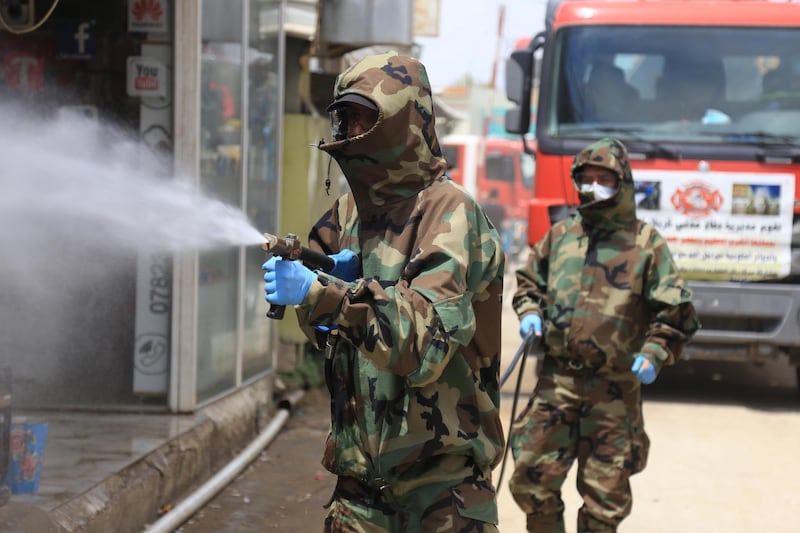Iraq's nationwide lockdown to contain the coronavirus outbreak is being extended until April 23, the government said on Thursday.
Schools, universities, shopping centres and other large gathering places will remain closed, as will the country's international airports.
The government confirmed 1,415 cases on Wednesday night, with 79 deaths and 766 recoveries.
But there are suspicions that the real numbers are much higher.
According to sources quoted in a Reuters report in early April, the true number ranges from 3,000 to 9,000.
The news agency was suspended from operating in Iraq for three months and fined 25 million Iraqi dinars, or about $20,800, after it reported the claims.
Reuters said it stood by the story, which “was based on multiple, well-placed medical and political sources, and fully represented the position of the Iraqi health ministry”.
It said it regretted the Iraqi authorities’ decision but was “seeking to resolve the matter”.
Iraqi President Barham Salih said he was working with a legal team to revoke the decision.
Mr Salih said the story had caused distress in Iraq because it implied a deliberate falsification of records by the government, which he said had not been the case.
"The WHO has also confirmed there has been absolutely no evidence of deliberate falsification of records. You cannot hide the deaths,” Mr Salih said.
Meanwhile, the United Nations urged Iraq's parliament to approve a law against domestic violence law after an increase in reports of gender-based and domestic violence.
The UN said this was partly due to an “increased household tensions as a result of the confinement due to the Covid-19 pandemic.”
Iraq's interior ministry has published phone numbers that women can call for help from security forces after reports surfaced of the rape of a woman with special needs, spousal abuse, immolation and self-immolation as well as self-inflicted injuries due to spousal abuse, sexual harassment of minors, and suicide due to domestic abuse among other crimes.
“Such crimes raise the alarm for the urgency to endorse the Anti-Domestic Violence Law in Iraq,” the UN’s office in Iraq said in a statement on Thursday, referring to a draft law awaiting passage by legislators.
“The UN in Iraq calls upon authorities to ensure that the judicial systems continue to prosecute abusers, invest more in hotline and online services, support the role of civil society organisations, keep shelter doors open for women fleeing abuse and punish perpetrators of any gender-based violence,” it said.







